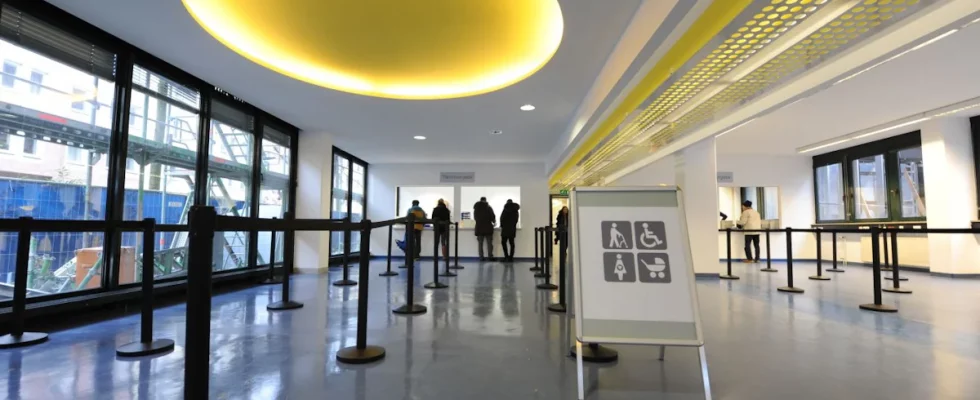The city is planning a major reorganization of its citizens’ offices. The future of the house at Leonrodstrasse 21 had already been in jeopardy several times, and now Munich’s smallest contact point for applying for ID documents or car registrations should finally come to an end – and not only that: other locations in Moosach and Neuperlach are now finally off the table.
District administration officer Hanna Sammüller-Gradl wants to give up the Neuhauser location “after the expansion of the Pasing citizens’ office.” In mid-May, the head of the authorities announced in a letter to the Neuhausen-Nymphenburg district committee that this would be presented to the city council for a decision.
“From the point of view of the district administration department, it is expedient to offer the Munich population large and efficient offices in conveniently located locations,” explains Sammüller-Gradl. Anyone who wants to extend their passport or deregister their car should be able to go to the citizens’ office headquarters on Ruppertstrasse in the future – or branches in the Pasinger town hall, in a new building on Scheidplatz from the end of 2024 and at a location in the Thalkirchen district that can still be found by the municipal department -Obersendling-Forstenried-Fürstenried-Solln. The expansion of the citizens’ office on Forstenrieder Allee, initially planned for the south of Munich, is also off the table “due to an unexpected, massive increase in costs.” There are currently six contact points – the authority does not yet want to comment on what will happen to Riesenfeldstrasse in Milbertshofen and the office at Orleansplatz.
Sammüller-Gradl bases her location strategy on budget requirements and an increasing online offering. Not only that, all departments would have to save 15 percent of their jobs and reduce their expenses for renting and managing administrative buildings by at least 20 percent. The framework conditions have also changed due to advances in digitalization and the introduction of nationwide appointment scheduling.
“Since the beginning of the corona pandemic, online services have been increasingly offered and have been very well received by citizens.” The authority now offers 43 such services, as well as 26 contact forms – and the trend is rising. Anyone who uses it can save themselves a trip to the authorities, as long as identity checks or signing documents on the spot are not necessary. The administration estimates that around 90,000 visits to citizens’ offices can be saved in the medium term. Scheduling appointments also helps avoid long waiting times.
Large citizens’ office units, the speaker argues, reduce space and personnel costs, and staff shortages can be better cushioned in the short term. The abandonment of the Leonrodstrasse location alone will result in “annual savings of around 165,000 euros”.
People in the district do not want to accept a complete loss
However, one of the main reasons for the closure of the Neuhauser contact point is the lack of space. The citizens’ office on Leonrodstrasse is so cramped that visitors with strollers cannot get past those sitting waiting. Accessibility is not available everywhere either. And, according to the authority, conducting confidential conversations represents “a major challenge”. The occupational safety service has been criticizing the non-compliance of workplace guidelines for years.
People in the neighborhood are aware of these deficits. The district committee, which has so far been able to prevent the branch in Neuhausen from being closed, accepts the “temporary elimination” of the citizens’ office, but is calling for an alternative location in the long term. More than 100,000 people live in Neuhausen-Nymphenburg alone who need “a citizen-friendly administration,” says Rudolf Stummvoll. The district politician has long headed the Office for Housing and Migration in the social department; he “does not believe that centralization will be effective in the long term.” Relatively close by, there may soon be options at Landshuter Allee 48 or on the Stadtwerke site.
Disappointment also in Neuperlach, where after more than 50 years a cultural and community center is finally to be built on Hanns-Seidel-Platz – only without a citizens’ office. “The question for us now is, what will happen instead? Is the city now withdrawing from the square?” The citizens’ office, emphasizes the head of the Ramersdorf-Perlach district committee, Thomas Kauer (CSU), would also have been important as an anchor tenant. His suggestion: open a second driving license office in Munich in addition to the existing one on Eichstätter Straße in the new complex.

